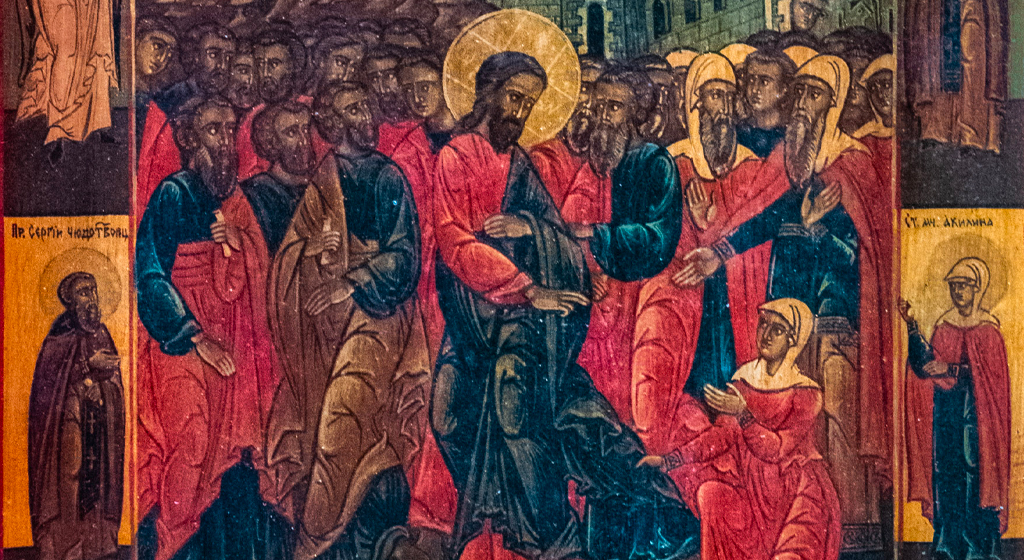Memory of the Poor
European memory of the Shoah
Reading of the Word of God
Alleluia, alleluia, alleluia
This is the Gospel of the poor,
liberation for the imprisoned,
sight for the blind,
freedom for the oppressed.
Alleluia, alleluia, alleluia
2 Samuel 5,1-7.10
All the tribes of Israel then came to David at Hebron and said, 'Look, we are your own flesh and bone. In days past when Saul was our king, it was you who led Israel on its campaigns, and to you it was that Yahweh promised, "You are to shepherd my people Israel and be leader of Israel." ' So all the elders of Israel came to the king at Hebron, and King David made a pact with them in Yahweh's presence at Hebron, and they anointed David as king of Israel. David was thirty years old when he became king, and he reigned for forty years. In Hebron he reigned over Judah for seven years and six months; then he reigned in Jerusalem over all Israel and Judah for thirty-three years. The king and his men then marched on Jerusalem, on the Jebusites living in the territory. These said to David, 'You will not get in here. The blind and the lame will hold you off.' (That is to say: David will never get in here.) But David captured the citadel of Zion, that is, the City of David. David grew stronger and stronger, and Yahweh, God of Sabaoth, was with him.
Alleluia, alleluia, alleluia
The Son of Man came to serve,
whoever wants to be great
should become servant of all.
Alleluia, alleluia, alleluia
This passage tells the story of David's investiture as king of all Israel. The tribes of the North decide to ally with David they invite him to reign over Israel as well. The throne had been vacant since the assassination of Ishbaal and his general Abner. In both cases, it is striking that David does not rejoice at the misfortune that had struck the house of Saul, even if it opened the way to national reunification. David does not want to build his kingdom on blood. The various tribes decide to unite with David as their one king. David accepts because he sees the will of God in all of this. He is well aware of the fact that he is not becoming king because of any merit of his own, but because God himself is acting. God chose David in place of Saul when the former king had become unworthy of the gift of kingship. Two events solidify the foundation of David's reign: the capture of the stronghold of Zion, which will become the capital of the united kingdom (5:6-12) and a victory against the Philistines (5:17-25). The capture of the "stronghold of Zion" (v. 7) is described as David's most brilliant and successful undertaking. The "stronghold" was a fortified hill in a strategic position which had remained unvanquished. It was surrounded by the territory of the tribe of Benjamin, but they had never been able to conquer it. The difficulty of the enterprise can be seen in the scorn expressed by the inhabitants of the besieged city, whose proverb meant that even if the stronghold were only defended by the blind and the lame, no one would ever enter it. David understood that if he were able to take control of the stronghold, he would be able transform it into the capital of the united kingdom. This would give the kingdom a capital near the centre of the country, halfway between Judah and Israel, in a neutral area over which neither side had a territorial or ideological claim. Zion will be called the "city of David."
